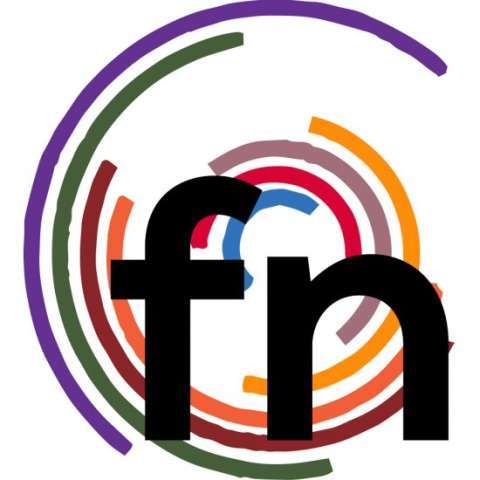As a creative soul, your instinct might be to channel all your energy into your art, but acquiring negotiation skills for artists is equally important. This skill set is essential for advocating the worth of your work and navigating the complexities of professional agreements. So, let's explore how these skills can elevate your artistic career and help you maximize success in booking events.
Knowing the Value of Your Art
Understanding the value of your art is the most important step that comes before any negotiations and agreements. It involves so much more than just slapping a price tag on your masterpiece. Here's how to determine your art's value:
-
Start by self-reflecting and asking yourself, 'What unique qualities does my art bring?' Consider your style, the time invested, and the emotions evoked. Your art's uniqueness is a big part of its value.
-
Do market research. Compare prices of artworks similar in medium, size, and style. Attend galleries and art shows, and follow online platforms to get a feel for the market.
-
Engage with other artists, mentors, or art enthusiasts. Constructive feedback can provide insights into how your art is perceived and where it stands in the market.
-
Pricing art isn't set in stone. As you evolve as an artist, so will the value of your art. Keep revisiting and adjusting your prices as you gain more experience and recognition.
Negotiation Tactics for Artists
Whether you're selling your art online or at fairs, knowing how to effectively use negotiation skills for artists is invaluable. These two arenas are wildly different beasts. When selling online, your communication is typically via emails or direct messages; your audience is global. This means your negotiation tactics need to be clear, concise, and respectful of diverse cultural norms.
On the other hand, selling at fairs allows for face-to-face interaction, where your charm and personal connection can play a significant role. Here, you can read body language and react in real time, tailoring your approach to each potential buyer.
Regardless of the platform, some core principles remain constant. Always be transparent about your prices and willing to explain the reasoning behind them. It's also important to listen. Understanding what the buyer is looking for or any concerns they might have can help you navigate to a solution that benefits both parties. And be prepared to walk away if the terms don't respect your work's value. Striking a balance between assertiveness and empathy is key.
Essential Elements of an Artist's Contract
Alright, creative minds, it's time to get into the nitty-gritty of artist contracts. These documents might seem intimidating, but they're actually your best pals in the professional world. They ensure that your rights are protected and your work is valued just as it should be.
Here's a breakdown of what to look out for:
-
Scope of work: This is the 'what' of your contract. It outlines exactly what you're creating, whether it's a painting, sculpture, or performance piece. It's all about clarity here.
-
Timelines: The 'when'. This part specifies deadlines for both creation and delivery. It helps keep everyone on track and avoids any misunderstandings about timeframes.
-
Payment terms: The 'ka-ching' factor. It details how much you'll be paid, when, and how. This can include deposits, final payments, and any other financial agreements.
-
Copyright: Super important! This section clarifies who owns the rights to the artwork once it's completed. It protects your creative rights and usage.
-
Creative control: This ensures you have a say in how your work is used. It's about maintaining artistic integrity and ensuring your vision is respected.
Remember, a contract is more than just a formality; it's the blueprint of your professional relationship. Don't shy away from negotiating terms that respect your art and your career. And hey, if you're ever unsure, don't hesitate to seek legal advice. Your art is worth it!
Handling Rejections and Counteroffers
Not every negotiation will end in a deal, and that's okay, but when faced with rejection, take it as an opportunity to learn. Ask for feedback if appropriate, and use it to refine your approach in future negotiations. It's all about maintaining a professional demeanor, regardless of the outcome.
Counteroffers, on the other hand, are a normal part of the negotiation dance and are some of the valuable negotiation skills for artists. They signify that the other party is interested but needs a bit more to seal the deal. Here, flexibility and creativity are your allies. Consider what adjustments can be made – maybe it's the price, the scope of the project, or the timeline.
However, always make sure that compromise doesn't undervalue your work. Successfully navigating rejections and counteroffers leads to better deals and builds your reputation as a professional and resilient artist.
Long-Term Networking
It's not all just about the deal at hand but about the future, too. Building long-term professional relationships is like nurturing a garden – it takes time, effort, and a lot of care. For artists, especially those in vibrant areas like the artistic communities around LA, NYC, or San Francisco, these relationships can be the backbone of a thriving career. Networking within these communities can lead to invaluable collaborations, referrals, and support systems.
Whether attending gallery openings, participating in local art fairs, or joining art collectives, each interaction is a chance to build lasting connections. It's so much more than simply exchanging business cards; it's about genuinely engaging with others, sharing experiences, and showing interest in their work.
Being a regular presence at local events and showing your support for fellow artists can go a long way. These relationships often extend beyond professional boundaries, forming a tight-knit community that grows together, offering opportunities and support through every stage of your artistic career.
Empowering Your Career with Negotiation Skills for Artists
Stepping up your game with negotiation skills for artists is a game changer. It's about more than just getting the price right but about understanding the art market and your place in it. With these skills, you gain insights into the festival community, learn how to navigate different platforms, and recognize the unique value your art brings. So, join the world of negotiation with confidence and watch as new doors open for your art!



